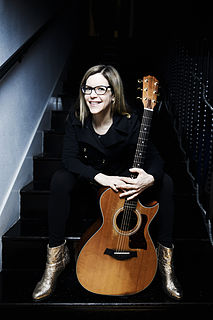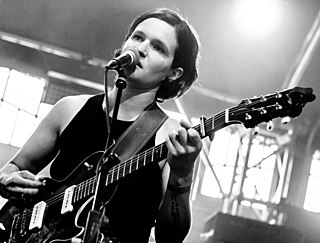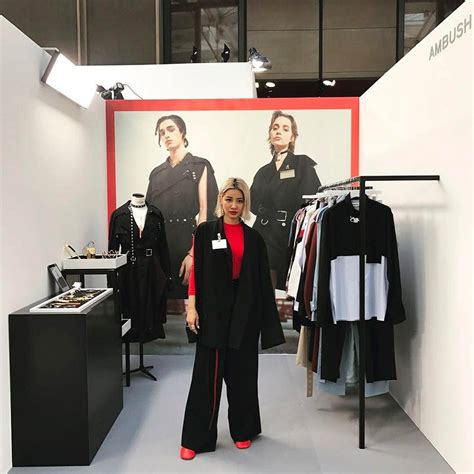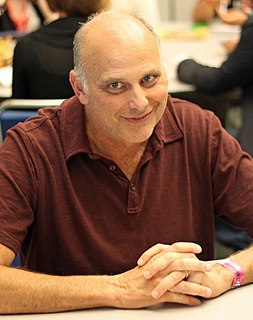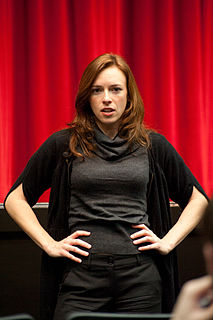A Quote by Lisa Loeb
I don't think I can tell any stories about how I lived in a van in Alaska. I grew up in the suburbs, I even had my own room. We weren't poor. Everything was very normal.
Related Quotes
I wanted to live in the suburbs and have a white picket fence and my own bedroom. And a staircase - I thought having a staircase meant that you were a normal family. I thought somehow if you could transplant us to the suburbs, we would become a normal family. But in retrospect, I'm so grateful I grew up in the Chelsea.
If I had not lived the life I had lived and did not have the wife I have and the children I have, I would never know how to play that role [of Dr. Bedsloe], and I wouldn't have any of those qualities. It's a real example of how it is true that the camera catches everything. Even the stuff you're trying to hide.
I grew up in a small town with a very small library. But the books in the library opened a large place in my heart. It is the place where stories live. And those stories have been informing my days, comforting my nights, and extending possibilities ever since. If that library had not been there, if the books - such as they were - had not been free, my world would be poor, even today.
Humans are kind of story-propagating creatures. If you think of how we spend our days, think of all the time you spend on entertainment. How much of your entertainment centers around stories? Most pieces of music tell stories. Even hanging out with your friends, you talk, you tell stories to each other. They're all stories. We live in stories.
What I think is great about Pippin, specifically, and I wouldn't make this generalization about all musicals, is that it is about how we tell stories and the way stories are very subjective. How we tell some things and leave other things out in the way The Princess Bride is or The Wizard of Oz is, which both have a framing device.
I mean, I've always felt like a lot of people's misconceptions of me have to do with how I grew up. I grew up poor, and I grew up rich. I think some people who have never met me have a misconception that when I was living with my father when he was successful, that I was somehow adversely affected by his success or the money he had and was making at the time.
What I want to do is tell stories about normal people in the American suburbs. I don't write the book where it's a conspiracy reaching the prime minister; I don't write the book with the big serial killer who lops off heads. My setting is a very placid pool of suburbia, family life. And within that I can make pretty big splashes.
